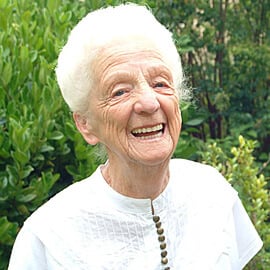Jeff Kennett is widely credited with saving Victoria. As Premier for eight years, he turned the state around from a steep slide with a $33 billion debt burden - a legacy of the Cain Government - to the most progressive state in the country with a AAA rating.
Big and unpopular decisions often don't translate to a politician being liked. Success and confidence can also be interpreted as arrogance...and Australians like to teach ‘arrogant' people a lesson. The Victorian electorate shocked the country by ejecting Kennett from office in 1991. He was 51 years of age.
Since then he has been very busy, but not accumulating a fortune by working his prodigious contacts. Rather, he has been pursuing interests that fit his civic sense of purpose. As he says: "It's the mind that matters."
On leaving school, Jeff was dispatched by his father from Melbourne to Canberra to study Law, but upon arrival he enrolled in Economics instead. Failing first year, he abandoned tertiary education and was later conscripted, ending up in officer training school.
After the army, he briefly embraced importing and then advertising before being elected to state parliament at age 28. He says today that he is now a wealthy man because he was a public servant for the next 23 years.
From the beginning of his political career, he sought out responsibility for the portfolios with social implications. ‘Community' is a word he uses a lot, as is ‘depression.' He created Beyond Blue as an not-for-profit advocacy organisation that has a mandate, according to Jeff, to make suffering depression as freely talked about as having the flu. He thinks that after 10 years they are half way there. One of Beyond Blue's biggest challenges going forward is depression suffered by people over 50.
This is what Jeff has to say about life at 58 and depression.
Jeff: "I am here to tell you that I am going to live to 150, no doubts about it. I believe this strongly. My reasoning is simple. If I do not believe this and I believe the usual stuff that my effective days end when I am 65, then that is when I will hit a wall. What is left? It would be like steam train at the end of a tunnel. I see my life as being split into three periods. The first 50 years were about learning. The second 50 years are about putting what I have learnt into effect and my third 50 years will be teaching what I have learnt."
"By thinking long term I am always engaged. One of the troubles of our community is that we tend to live for today when we should be living for tomorrow. We should always be working for tomorrow. I am also not a wealthy man. I have to keep working. I have lived in the same house for 27 years, I don't have a place in the country or own a beach house. I have to keep putting food on the table. This means that, like everyone, I have to evolve."
"Two vital components of this are health and the speed of change. My health is my number one priority. You can't run a business without it. Ten years ago I would have said that my wife and children were my number one priority but now I realise it's my health - a means to the same end. Health in the community is also something we have to talk about a lot more because it affects the quality of life of everybody plus the community itself. And this is not just the physical health but also the mental health, which our work with Beyond Blue obviously has a role in. I regard Beyond Blue as the most important work that I have done and continue to do. I often say, one of the best ways to combat depression is to be physically fit - to walk every day, to do some exercise. For my mental and physical health, I walk the dog daily and we have a gym at home. I also love gardening with my wife; I love getting my hands into the soil. My best political ideas came to me while I was gardening! I also play golf, badly."
"The speed of change is equally important because it affects everything - each of us and the society we live in. When television arrived, the husband and wife would sit down and have dinner with the kids. Then we had the '56 Games and our family patterns started to change. Today we all eat at different times, we have two television sets, the family is scattered. The children now move countries; we have computers, iPods and mobile phones to keep in contact by text messaging. Coping with accelerating change is going to be one of the biggest challenges we will have to pass on to our kids. It is a fact that our children will have at least 10 careers in their lives."
"We too have to face the fact that we will have more careers than we expect. I don't accept the argument that when you retire, you retire. It's all about the mind. There is so much need in the community. You can get a job as a volunteer... but you can also get a job as a house painter. It's not about where you start, it's about where you finish. My advice to anyone contemplating retirement is to get a new life and live it for all it is worth."
"Beyond Blue is a national, independent, not-for-profit organisation working to address issues associated with depression, anxiety and related substance misuse disorders in Australia. Beyond Blue's key goal is to raise community awareness of depression and reduce the stigma associated with the illness."
In a 2004 interview with Andrew Denton's Enough Rope, Jeff Kennett explained the origin of Beyond Blue.
"My daughter had come to me and said - after two deaths of young men in the western district here in Victoria - ‘Dad, what are you gonna do to stop these deaths of young men?' When we looked at those deaths, they weren't just car deaths, although they'd used their cars, they were two young men who were so depressed they had used their cars to take their lives. As a result of that, I started to look at suicide prevention and realising the title there was incorrect. We should be trying to prevent suicide and therefore deal with depression..."
"I decided, as part of our reward for our economic recovery here in Victoria, that I would commit a large sum of money to establish a national depression initiative here in Victoria - for Australia, but we would fund it. You've got to understand that one in five Australians will suffer from depression at some stage in life - 800,000 in any one year. And, sadly, seven people every day are taking their own lives in Australia - more than twice the road trauma. And you think of all the attention you hear about driving carefully, not drink-driving, and, of-course, nothing to do with depressive illnesses at all. I honestly feel that... to me, Beyond Blue will be my most valuable work because it is so universal."
For information on depression or to contact Beyond Blue, call 1300 224 636 or their website.






